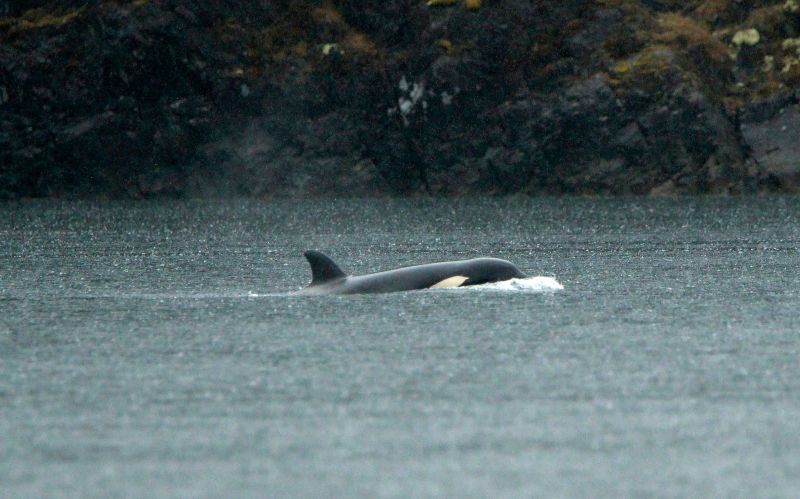In British Columbia, a heart-tugging drama has been unfolding in recent days as rescuers, rangers, and biologists have been making concerted efforts to save an orphaned orca calf that became stranded in a lagoon. Recently, however, these rescue operations were temporarily brought to a halt, underlining the plethora of complexities involved in wildlife rescue missions.
The orca, scientifically known as Orcinus orca, is a species of dolphin and one of the most recognizable marine mammals, marked by its characteristic black body and white patches. This particular calf was identified as a member of a pod frequently sighted around the coastal waterways of British Columbia. After losing its mother, the young calf somehow found itself ensnared within a lagoon and has remained helpless since then.
The rescue operation, despite its comparatively straightforward goal, has been fraught with several hardships and obstacles. Up to this point, a multitude of factors has converged, prompting the rescuers to hit the pause button on their mission, even as they remain committed to the cause.
A significant challenge was the location itself, which made the rescue operation more complex than initially anticipated. The orca calf was trapped within a lagoon – an area marked by shallow water and bordered by land, thereby adding a degree of territorial complexity to manoeuvre the rescue, involving both marine and land-based operations.
Another issue was the weather conditions. British Columbia, known for its notoriously unpredictable weather, experienced a sequence of rain, high winds, and choppy waves, making the rescue operation even more difficult. Not only did it hamper the visibility and accessibility for the team, but it also created an exhausting environment for the petrified calf.
Added to this, the calf’s health has been a growing concern. Emaciated, scared, and evidently traumatized after losing its mother and ending up trapped, the health of the young orca calf became a source of more worry for the rescuers. Therefore, any approach had to be cautious and measured, taking into account both the physical and mental well-being of the calf to avoid causing any further undue stress.
Despite the pause, the rescuers remain undeterred, with their efforts ongoing to monitor the situation and reassess their strategies to save the calf. Several organizations including the Department of Fisheries and Oceans Canada, and others such as the Marine Mammal Rescue Centre are involved in this operation. Notably, these organizations are known for respond to incidents involving marine mammals, providing medical care and rescues.
The event unfolding in British Columbia is a sobering reminder of the innumerable and often unpredictable challenges that environmental workers, biologists, and rescuers confront as they work towards preserving and protecting wildlife. Notwithstanding the setbacks, their unwavering commitment stands testament to the human spirit’s resilience and empathy towards these magnificent creatures, urging us to reflect on our actions and their subsequent impacts on wildlife.
In the midst of these challenges, the plight of the orphaned orca calf serves as an urgent clarion call to protect marine life, and by extension, the world around us. The calf’s struggle in the lagoon is emblematic of the broader survival struggles faced by numerous marine creatures daily, calling for stronger human intervention to preserve our marine ecosystems and their residents.




